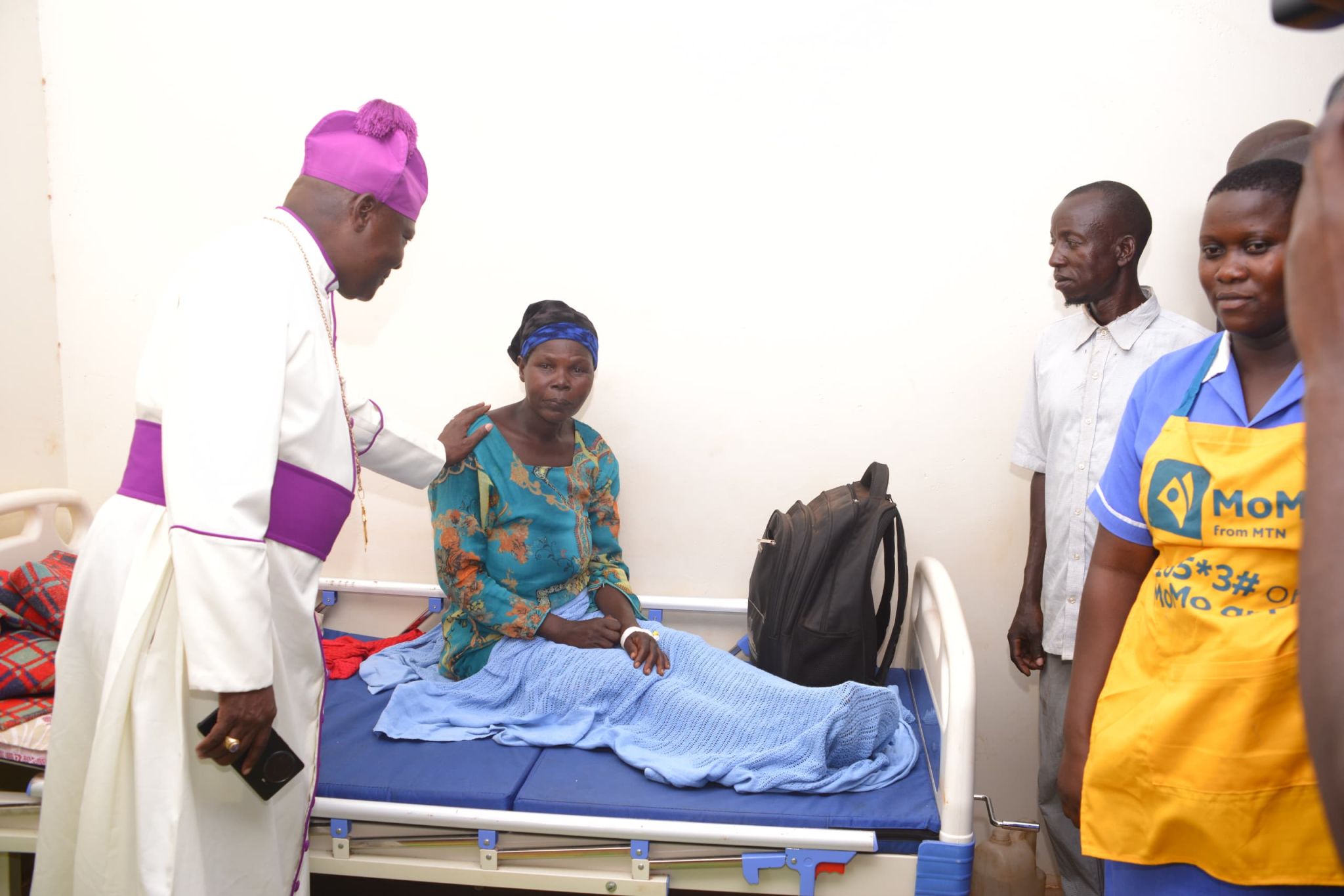Luuka District, Uganda. MTN Uganda, through its philanthropic arm,
MTN Foundation, has reaffirmed its commitment to improving healthcare access in Uganda with a
significant donation valued at more than UGX 58.3 million to Nawansega Health Centre III in Luuka
District.
The donation includes essential medical equipment such as a CBC 3-part machine, a centrifuge
machine, delivery and programming costs, solar lighting, 15 hospital beds and 15 mattresses, a
medical refrigerator, and a microscope, aimed at bolstering healthcare services in the region.
The ceremony, held at Nawansega Health Centre III, was attended by community leaders, health
practitioners, and representatives from MTN Uganda, marking a pivotal moment in MTN Foundation’s
Access to Health Care Initiative. This initiative focuses on enhancing maternal and neonatal health
countrywide.
“We, at MTN, firmly believe that everyone deserves the benefits of a modern connected world,
including access to quality healthcare,” said Dorcas Muhwezi, General Manager for Customer
Experience at MTN Uganda.
“This belief is the driving force behind our Access to Health Care Initiative, which we proudly launched
in 2018 to help our government improve maternal and neonatal health in our communities.”
Nawansega Health Centre III, a private not for profit facility, supporting more than 4,200 people, thus
joins a growing list of 45 other beneficiaries under this initiative, which has seen MTN Foundation
invest UGX 1 billion since its inception. Some of the health centres that have benefitted from this
initiative include Kimaka Health Centre III in Jinja City, Kagote Health Centre III in Fort Portal City, Ajia
Health Centre III in Arua District, Kyayi Health Centre III in Gomba District, and Kaabong Mission
Health Centre III in Kaabong District. Each centre has received critical equipment and support aimed
at enhancing the quality of care provided to their communities.
Muhwezi emphasized that the new support is closely aligned with UN Sustainable Development Goal
3, which aims to reduce the global maternal mortality ratio to less than 70 per 100,000 live births and
end preventable deaths of newborns and children under 5 years by 2030.
MTN Uganda | Media Release
Recent data from the Demographic and Health Survey conducted by the government and its partners
in 2019 show significant improvements in maternal and under-five mortality rates in Uganda.
Maternal mortality has declined by more than half since 1990, to 336 deaths per 100,000 live births,
while the under-five mortality rate has dropped from 183 deaths per 1,000 live births to 43 deaths per
1,000 live births during the same period. However, maternal mortality rates remain high, underscoring
the need for sustained efforts to improve healthcare outcomes.
“We extend our sincere appreciation to the management of MTN Uganda for their support, which will
significantly enhance healthcare in our nearby communities,” said Kenneth Kulata, In-Charge of
Nawansega Health Centre III.
However, Kulata noted that the facility still faces challenges, including inadequate staffing, the
absence of an ambulance, and a lack of clean piped water.
Patrick Wakula, the Bishop of Busoga Central Diocese and the chief guest, urged residents to utilize
the health facility for all health-related issues, including counseling services. “Let us work together to
eliminate diseases in our communities and learn to seek healthcare services at our health facilities,”
he said.
Over the past decade, the MTN Foundation has invested more than UGX 30 billion across various
sectors, including health, education, and economic empowerment, impacting the lives of over 4 million
people across the country.
—– END—–
About MTN Uganda Foundation
The MTN Uganda Foundation is a not-for-profit legal entity that was inaugurated in July 2007 as a
vehicle through which MTN Uganda implements its corporate social investments (CSI). The
Foundation strives to improve the quality of life in communities where MTN Uganda operates in a
sustainable way. Its purpose is to bring about meaningful, measurable, and sustainable change that
helps disadvantaged and rural communities to become self-sufficient. With a focus on innovative
technology, we aim to uplift communities towards independence in this bold new digital world. The
Foundation invests resources for social redress, thus economic empowerment, education, health, and
humanitarian response. The Foundation implements projects that are highly enabled by ICT solutions.






















